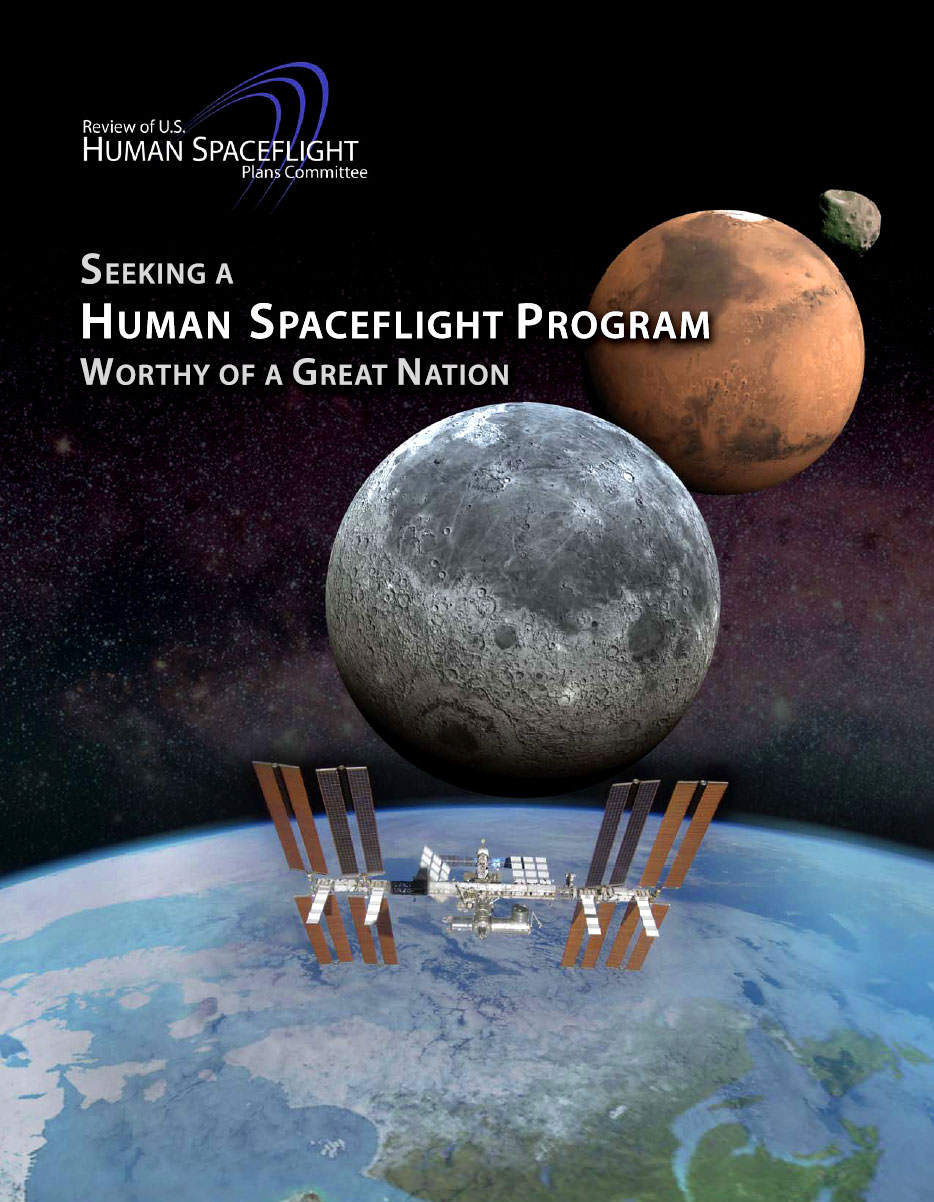[/caption]
Over at Space Politics, Jeff Foust points out that a provision for an independent study about human spaceflight was quietly included in last year’s NASA authorization act. The parameters of such a study would be similar to the decadal surveys done by the astronomy and planetary science disciplines. Foust reports that last week such a concept for human spaceflight was debated at a small conference where NASA’s Phil McAlister from the Office of Program Analysis and Evaluation said, “I believe in this Academies-like study that will allow the human spaceflight community to come together, like the science community has done for years and years, effectively. With that kind of document and blueprint… then finally, maybe, we can get the long-term consensus required to actually finish one of these programs. That is my sincere hope.”
Would such a study be helpful in giving U.S. human spaceflight unwavering direction and goals that don’t change with each presidential administration?
The debate is continuing in the comment section on Foust’s article and on Twitter, and so far the lines are divided between this being a good idea or one that would never work for human spaceflight.
Some comments suggest this type of survey would be just another exercise on paper that will accomplish nothing – and would be a repeat of the Stafford Report or the Augustine Commission, where programs and direction is suggested, but since it isn’t “law” politicians would ignore it in favor of projects in their own districts.
Others said there isn’t a strong figure in human spaceflight, such as a Steve Squyres who led the recent planetary decadal survey (although someone suggested Wayne Hale or Bill Gerstenmaier).
On the other side of the debate, still others said that some kind of consensus review is needed in order to direct NASA’s priorities with human space flight, as there has been no clear sustainable direction since the decision to build the ISS. Someone suggested this would be helpful for the international partner, as well, to know what NASA might do next.
What are your views – would a decadal survey for US human spaceflight be a good idea?


I read that NASA and ESA divorce over money. What’s up united states of lol?
I think it would be a great idea. It wouldn’t cost much to do, so the worst that happens is that the consensus that is reached gets ignored. Which has been happening for 40 years in human spaceflight, so that would be nothing new. The best that would happen is that the consensus that was arrived at would be followed vigorously. That’s unlikely.
The most likely scenario would be that politicians would pick a few things out of the consensus survey that suited their purposes, and run with those. And you know what? That wouldn’t be so bad. It wouldn’t be the best outcome, but it would be better than what we have now, which is politicians pulling spaceflight opinions out of their asses, because they are completely uninformed.
“there isn’t a strong figure in human spaceflight, such as a Steve Squyres who led the recent planetary decadal survey”
Because contrary to planetary spaceflight, human spaceflight is aimless, and will likely remain so for the foreseeable future.
Since Lyndon Johnson, the nominal head of the Executive Branch on developing manned space policy has been the Vice President. Perhaps that is one place to start. As well, consider the Associate Administrator for Manned Space Flight, or whatever their title has/will become. Or if you want the plan to have real vision, Story Musgrave (he has a great biography). Any way you cut it, we need such a plan, ever since Jim Webb canceled future production of the Saturn V in August 1968 due to lack of any guidance in manned space flight after the funded Apollo program.
I seems to me that NASA’s very problem is the fact that it is NASA. Being a government institution, it’s subject to political whims, and, as we have seen, often suffers for that. I think this idea is a good one—it certainly can’t do any harm.
Kind of off topic, but I think most people have lost interest in spaceflight because there haven’t been any big accomplishments (at least to those that are just casual students of space) since Apollo. We don’t even have the shuttles anymore! Once people see that there is a plausible plan that can show some results and human spaceflight isn’t just a black hole for money, I think (or at least hope) that old space race fervor may be rekindled.
Very true. People do not see that a lot of the technology they deal with in their every day lives exsist because of the space program. It really sucks. I am getting tired of arguing with my classmates about whether or not the space program is a waste of money.